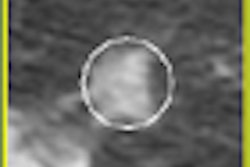
NEW YORK (Reuters Health), Nov 30 - Concern that estrogen depletion in women with breast cancer may contribute to cognitive compromise does not appear to be warranted, at least over the short term, according to a report in the November 1 issue of Cancer.
"Antiestrogen therapy with tamoxifen or aromatase inhibitors did not have any significant effects on cognitive function, and I think it is safe to say that patients needn't worry about cognitive side effects of these medications," Dr. Kerstin Hermelink from Ludwig Maximilian University, Munich, Germany, told Reuters Health.
Hermelink and colleagues assessed the effects of induced menopause and antiestrogen therapy on cognitive function in 101 women with nonmetastatic, invasive breast cancer.
At about seven months after the completion of neoadjuvant therapy, the cognitive performance of the overall group, and of all subgroups based on menopausal status and antiestrogen therapy, ranged within or above the test norms on all cognitive tests, the investigators report.
In fact, they say, the effects of induced menopause on cognitive function appeared to be positive in some tests.
"In our study, cognitive compromise was already present before any cancer treatment," Hermelink explained. "Several other prospective studies have also found pretreatment cognitive dysfunction. Therefore, cognitive compromise in cancer patients must at least in part have other causes than the cancer therapy. We presume that stress might play an important role."
Cancer 2008;113:2431-2439.
Last Updated: 2008-11-27 8:50:22 -0400 (Reuters Health)
Copyright © 2008 Reuters Limited. All rights reserved. Republication or redistribution of Reuters content, including by framing or similar means, is expressly prohibited without the prior written consent of Reuters. Reuters shall not be liable for any errors or delays in the content, or for any actions taken in reliance thereon. Reuters and the Reuters sphere logo are registered trademarks and trademarks of the Reuters group of companies around the world.

















